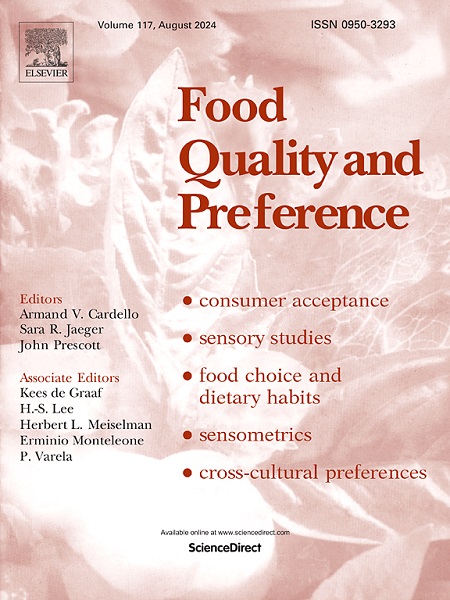“Waiter, the checkmark please”: Restaurant managers' and customers' evaluations of nudges towards sustainable food choices
IF 4.9
1区 农林科学
Q1 FOOD SCIENCE & TECHNOLOGY
引用次数: 0
Abstract
Food choices play a key role in sustainability. Restaurants, given their significant impact on food-related carbon emissions, are a prime focus for nudging interventions targeting sustainable food choice. Before these interventions can be implemented, we need to know more about both restaurant managers' and customers' approval of these interventions. In this series of studies, we measured the evaluation of eight different co-created nudge strategies towards sustainable eating to be implemented in a restaurant context in two large, representative samples of restaurant managers (n = 125) and customers (n = 989). We find that overall, both restaurant managers and customers are positive about all proposed nudges. For restaurant managers, only the default was evaluated slightly less positive than the others, while for customers, information indicators (visibility, checkmarks, and icons) were slightly preferred. For restaurant managers, appreciation of nudges was predicted by the degree they saw vegetarianism as an opportunity, while for customers this was predicted by perceived outcome efficacy of restaurants, their own willingness to change, their libertarianism, and their perceived importance of vegetarian food. Furthermore, restaurant managers and customers both clearly evaluated “local” and “vegetarian” food differently. Despite overall positive evaluations, actual implementation was very low, which may relate to restaurant managers being unaware of customers' positive appraisal. Future research should endeavor to find what practical barriers towards implementation restaurant managers encounter, and how the role of customers can be supportive of the global transition towards sustainable food choices.
“服务员,请打勾”:餐厅经理和顾客对可持续食品选择的评价
食物选择在可持续发展中起着关键作用。鉴于餐馆对食品相关碳排放的重大影响,它们是推动以可持续食品选择为目标的干预措施的主要焦点。在实施这些干预措施之前,我们需要更多地了解餐厅经理和顾客对这些干预措施的认可程度。在这一系列研究中,我们测量了在餐厅环境中实施的八种不同的共同创建的推动策略的评估,这些策略是在餐厅经理(n = 125)和顾客(n = 989)的两个大型代表性样本中实施的。我们发现,总体而言,餐厅经理和顾客对所有提议的推动都持积极态度。对于餐厅经理来说,只有默认选项的正面评价略低于其他选项,而对于客户来说,信息指标(可见性、复选标记和图标)略受青睐。对于餐厅经理来说,他们将素食主义视为一种机会的程度可以预测他们对推动的欣赏程度,而对于顾客来说,这是通过餐馆的感知结果效率、他们自己改变的意愿、他们的自由意志主义以及他们对素食的重要性的感知来预测的。此外,餐厅经理和顾客对“本地”食物和“素食”食物的评价明显不同。尽管总体评价是积极的,但实际执行率很低,这可能与餐厅经理没有意识到顾客的积极评价有关。未来的研究应该努力找出餐厅经理在实施过程中遇到的实际障碍,以及顾客的角色如何支持全球向可持续食品选择的过渡。
本文章由计算机程序翻译,如有差异,请以英文原文为准。
求助全文
约1分钟内获得全文
求助全文
来源期刊

Food Quality and Preference
工程技术-食品科技
CiteScore
10.40
自引率
15.10%
发文量
263
审稿时长
38 days
期刊介绍:
Food Quality and Preference is a journal devoted to sensory, consumer and behavioural research in food and non-food products. It publishes original research, critical reviews, and short communications in sensory and consumer science, and sensometrics. In addition, the journal publishes special invited issues on important timely topics and from relevant conferences. These are aimed at bridging the gap between research and application, bringing together authors and readers in consumer and market research, sensory science, sensometrics and sensory evaluation, nutrition and food choice, as well as food research, product development and sensory quality assurance. Submissions to Food Quality and Preference are limited to papers that include some form of human measurement; papers that are limited to physical/chemical measures or the routine application of sensory, consumer or econometric analysis will not be considered unless they specifically make a novel scientific contribution in line with the journal''s coverage as outlined below.
 求助内容:
求助内容: 应助结果提醒方式:
应助结果提醒方式:


